Media Coverage

Poets & Quants
Where will you be working after graduation?
I have accepted a full-time offer from Deloitte, where I will be working as a Strategy and Operations consultant.
Who is your favorite professor?
Professor Francis Ng has been my favorite college professor. I have taken three finance classes with him over the years, and he continues to amaze me. His classroom lectures further developed my interest and knowledge of finance. However, it was our conversations during his office hours that had made him my favorite professor. We would begin our conversations about specific stocks and then expand the discussions to include geopolitical factors and trends that influence the movement of a company’s stock and the stock market itself. Through this, Professor Ng taught me analytical thinking and how politics and economic forces impact companies.
I have accepted a full-time offer from Deloitte, where I will be working as a Strategy and Operations consultant.
Who is your favorite professor?
Professor Francis Ng has been my favorite college professor. I have taken three finance classes with him over the years, and he continues to amaze me. His classroom lectures further developed my interest and knowledge of finance. However, it was our conversations during his office hours that had made him my favorite professor. We would begin our conversations about specific stocks and then expand the discussions to include geopolitical factors and trends that influence the movement of a company’s stock and the stock market itself. Through this, Professor Ng taught me analytical thinking and how politics and economic forces impact companies.

Analytics India
AI can detect suspicious behaviour and alert shop personnel of possible shoplifters.
A Japanese startup Vaak has successfully installed and tested the tech in local convenience stores which cut down shoplifting losses by 77 percent. The system collectively works with the shop’s surveillance cameras to identify possible thefts that the staffers might miss.
Another criticism came from Jerome Williams, a professor and senior administrator at Rutgers University’s Newark campus. He said that the unfair practices of human beings alone can result in a biased system. He raised concerns about the training data teaching the system a wrong sense of targeting the shoppers based on skin colour. He said that black people often fall victim to injustice and are often routinely stopped on suspicion. “The people who get caught for shoplifting is not an indication of who’s shoplifting,” He said. “It’s a function of who’s being watched and who’s being caught, and that’s based on discriminatory practices.”
A Japanese startup Vaak has successfully installed and tested the tech in local convenience stores which cut down shoplifting losses by 77 percent. The system collectively works with the shop’s surveillance cameras to identify possible thefts that the staffers might miss.
Another criticism came from Jerome Williams, a professor and senior administrator at Rutgers University’s Newark campus. He said that the unfair practices of human beings alone can result in a biased system. He raised concerns about the training data teaching the system a wrong sense of targeting the shoppers based on skin colour. He said that black people often fall victim to injustice and are often routinely stopped on suspicion. “The people who get caught for shoplifting is not an indication of who’s shoplifting,” He said. “It’s a function of who’s being watched and who’s being caught, and that’s based on discriminatory practices.”

Press of Atlancic City
The arrests last week of seven area residents, who all pleaded not guilty, in the ongoing federal investigation into health benefits fraud has brought renewed attention to the case that has seen 23 South Jersey residents plead guilty since 2017.
Compounded medications, which are unregulated by the FDA, are legal and pharmacies can receive large payouts from insurers for the often expensive medications, which contributes to the abuse, said Michael Barnett, a professor of management and global business at Rutgers University and a fellow with the Institute of Ethical Leadership at the school.
Compounded medications, which are unregulated by the FDA, are legal and pharmacies can receive large payouts from insurers for the often expensive medications, which contributes to the abuse, said Michael Barnett, a professor of management and global business at Rutgers University and a fellow with the Institute of Ethical Leadership at the school.

News Wise
As they file their taxes this year, New Jersey residents may be left scratching their heads and many may be upset that their returns are smaller than expected.
The reason: this is the first year taxpayers will file under the new rules created in the Tax Cuts and Jobs Act of 2017. The new federal tax code brings significant changes – including a higher total standard deduction. The law also caps the amount of state income and local property taxes that can be deducted.
We spoke with Jay Soled, a professor and director of the Master of Accountancy in Taxation Program at Rutgers Business School–Newark and New Brunswick, to find out what New Jersey taxpayers can expect.
The reason: this is the first year taxpayers will file under the new rules created in the Tax Cuts and Jobs Act of 2017. The new federal tax code brings significant changes – including a higher total standard deduction. The law also caps the amount of state income and local property taxes that can be deducted.
We spoke with Jay Soled, a professor and director of the Master of Accountancy in Taxation Program at Rutgers Business School–Newark and New Brunswick, to find out what New Jersey taxpayers can expect.

NBC-MACH
A Japanese startup has developed artificial intelligence software that it says can catch shoplifters in the act — and alert staff members so they can swoop in to prevent pilferage.
Jerome Williams, a professor and senior administrator at Rutgers University’s Newark campus, has written extensively on race and retail environments. He said that unless training data is carefully controlled, a theft-detection algorithm might wind up unfairly targeting people of color, who are routinely stopped on suspicion of shoplifting more often than white shoppers.
“The people who get caught for shoplifting is not an indication of who’s shoplifting,” Williams said. “It’s a function of who’s being watched and who’s being caught, and that’s based on discriminatory practices.”
Jerome Williams, a professor and senior administrator at Rutgers University’s Newark campus, has written extensively on race and retail environments. He said that unless training data is carefully controlled, a theft-detection algorithm might wind up unfairly targeting people of color, who are routinely stopped on suspicion of shoplifting more often than white shoppers.
“The people who get caught for shoplifting is not an indication of who’s shoplifting,” Williams said. “It’s a function of who’s being watched and who’s being caught, and that’s based on discriminatory practices.”

NJBIZ
Lyneir Richardson, executive director of the Center for Urban Entrepreneurship and Economic Development at Rutgers Business School in Newark, said the problem is that today’s business climate doesn’t welcome startups — especially when it comes to real estate.
Celebrating its 10th year assisting New Jersey entrepreneurs, CUEED offers several initiatives that are hyper-focused on helping entrepreneurs to grow and be more profitable.
“Entrepreneurs are often experts in their business,” he said. “At programs like the Urban Retail Acceleration Program we want to help them work on their businesses.”
To do that, the men took stock of what they knew and what they needed to learn. And that’s what brought them to the Black and Latino Urban Retail Acceleration Program (BLU RAP) the original name of what’s currently known as the Urban Retail Acceleration Program.
Celebrating its 10th year assisting New Jersey entrepreneurs, CUEED offers several initiatives that are hyper-focused on helping entrepreneurs to grow and be more profitable.
“Entrepreneurs are often experts in their business,” he said. “At programs like the Urban Retail Acceleration Program we want to help them work on their businesses.”
To do that, the men took stock of what they knew and what they needed to learn. And that’s what brought them to the Black and Latino Urban Retail Acceleration Program (BLU RAP) the original name of what’s currently known as the Urban Retail Acceleration Program.

Diverse
Cantor has encouraged creation of an entrepreneurial incubator space where scholars can share ideas, collaborate on projects and learn how to partner with community-based organizations to bring good ideas to life, says Eatman. The idea is being developed by Dr. Ted Baker, professor and George F. Farris Chair in Entrepreneurship at Rutgers-Newark’s business school, and director of communications and marketing Kimberlee S. Williams.

NJBIZ
An organization at Rutgers Business School is out to show that conservation goals do not have to come at the expense of business growth.
Gary Cohen, a 35-year veteran of medical technology company Becton Dickinson & Co., founded the Rutgers Institute for Corporate Social Innovation to promote the idea that sustainability does not conflict with economic growth.
Jeana Wirtenberg, the institute’s associate director, explained at a sustainability conference held March 1 at Rutgers Business School in Newark that the goal is to help the whole world win. The sustainable development goals are about creating a better future for everyone on the planet.
“In order not to leave anyone behind, we want to achieve them by the year 2030,” Wirtenberg said. “Today we are focusing on fostering global development goals through community development in Newark. You are the pioneers locally and internationally. This is all about collaboration across sectors.”
Gary Cohen, a 35-year veteran of medical technology company Becton Dickinson & Co., founded the Rutgers Institute for Corporate Social Innovation to promote the idea that sustainability does not conflict with economic growth.
Jeana Wirtenberg, the institute’s associate director, explained at a sustainability conference held March 1 at Rutgers Business School in Newark that the goal is to help the whole world win. The sustainable development goals are about creating a better future for everyone on the planet.
“In order not to leave anyone behind, we want to achieve them by the year 2030,” Wirtenberg said. “Today we are focusing on fostering global development goals through community development in Newark. You are the pioneers locally and internationally. This is all about collaboration across sectors.”

The New York Times
As a longtime “Jeopardy!” devotee (and enthusiastic volunteer “Alex” at college trivia events), I was left with a heavy heart upon hearing the news of Alex Trebek’s illness. His poignant video announcement was in keeping with the charm, folksiness, good humor and decency that have characterized his 35 years as host.
Alex, many have beaten the odds, but none of them with the adoration and love of the millions of strangers who invite you into their homes every evening. We’re all pulling for your contract to be extended long past the current 2022!
Rosa Oppenheim
Ridgewood, N.J.
Alex, many have beaten the odds, but none of them with the adoration and love of the millions of strangers who invite you into their homes every evening. We’re all pulling for your contract to be extended long past the current 2022!
Rosa Oppenheim
Ridgewood, N.J.

NJBIZ
Rutgers Business School is offering lifelong learning opportunities to its alumni, beginning with a series of free lunch and learn webinars and discounted admission to a wide array of executive education programs.
Lei Lei, the dean of Rutgers Business School has championed the program as a way of enriching and engaging alumni. The school boasts a global network of more than 43,000 graduates.
“The need to stay relevant and learn throughout one’s life grows every day because of the pace of change,” Peter Methot, executive director of Rutgers Business School’s Executive Education, said in a statement.
Lei Lei, the dean of Rutgers Business School has championed the program as a way of enriching and engaging alumni. The school boasts a global network of more than 43,000 graduates.
“The need to stay relevant and learn throughout one’s life grows every day because of the pace of change,” Peter Methot, executive director of Rutgers Business School’s Executive Education, said in a statement.

Accounting Today
Rutgers Business School has announced a signed memorandum of understanding with the U.K.-based Chartered Institute of Public Finance and Accountancy that creates a pathway for its students to practice governmental accounting outside the U.S.
The agreement allows current students and graduates of the Rutgers Business School’s master of accountancy in governmental accounting program to qualify with CIPFA as a Chartered Public Finance Accountant via CIPFA’s online platform. The credential will allow graduates of the master of accountancy in governmental accounting program to work in public finance positions around the world.
The agreement was signed at Rutgers Business School on Feb. 27, 2019, in a ceremony attended by Rutgers Business School dean Lei Lei, executive vice dean Yaw Mensah, CIPFA CEO Rob Whiteman and professor Irfan Bora, director of the master of accountancy in governmental accounting program.
The agreement allows current students and graduates of the Rutgers Business School’s master of accountancy in governmental accounting program to qualify with CIPFA as a Chartered Public Finance Accountant via CIPFA’s online platform. The credential will allow graduates of the master of accountancy in governmental accounting program to work in public finance positions around the world.
The agreement was signed at Rutgers Business School on Feb. 27, 2019, in a ceremony attended by Rutgers Business School dean Lei Lei, executive vice dean Yaw Mensah, CIPFA CEO Rob Whiteman and professor Irfan Bora, director of the master of accountancy in governmental accounting program.

VoxDev
Participation in drafting regulation appears to make firms more willing to see government as a legitimate regulatory authority
As in many countries, Vietnam requires drafts of all new legislation to be made available for a public comment period before being made law. However, this policy is rarely implemented and, even when it is, the manner in which drafts are posted on websites usually results in very few views and far fewer actual comments. To fill the gap, Vietnam’s Chamber of Commerce and Industry (VCCI) often steps in and comments on behalf of the business community.
Our study involved measuring the impact of a pilot VCCI initiative to invigorate Vietnam’s public comment period (Malesky and Taussig 2019). In particular, VCCI representatives went to businesses in Hanoi and ten surrounding provinces to collect feedback on a new draft regulation aiming to protect workers’ handling of hazardous chemicals.
As in many countries, Vietnam requires drafts of all new legislation to be made available for a public comment period before being made law. However, this policy is rarely implemented and, even when it is, the manner in which drafts are posted on websites usually results in very few views and far fewer actual comments. To fill the gap, Vietnam’s Chamber of Commerce and Industry (VCCI) often steps in and comments on behalf of the business community.
Our study involved measuring the impact of a pilot VCCI initiative to invigorate Vietnam’s public comment period (Malesky and Taussig 2019). In particular, VCCI representatives went to businesses in Hanoi and ten surrounding provinces to collect feedback on a new draft regulation aiming to protect workers’ handling of hazardous chemicals.

NJBIZ
The Rutgers University Business School and the Chartered Institute of Public Finance and Accountancy have signed a memorandum of understanding creating a pathway for Rutgers students to practice governmental accounting outside the United States.
Under the agreement, current students and graduates of Rutgers Business School’s Master of Governmental Accounting students will be given the opportunity to qualify with CIPFA as a Chartered Public Finance Accountant through CIPFA’s online platform.
Under the agreement, current students and graduates of Rutgers Business School’s Master of Governmental Accounting students will be given the opportunity to qualify with CIPFA as a Chartered Public Finance Accountant through CIPFA’s online platform.

YaleGlobal Online
Currency overvaluation or undervaluation can have advantages or disadvantages, depending on a country’s circumstances. As part of negotiations for a trade deal with the Chinese, the Trump team seeks assurances that the government will not devalue the yuan or renminbi. But currency valuations are relative and fluid, and governments lack full control.
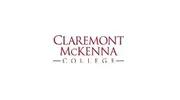
Claremont McKenna College
About 150 academics, professionals, and students in Claremont McKenna College’s Leadership Studies Sequence heard from an array of experts, including two who work daily at the intersection of leadership studies and practice.
The conference’s speakers included Rutgers Business School's Joanne Ciulla, Ph.D., whose work examines how to cultivate caring in leaders.
The conference’s speakers included Rutgers Business School's Joanne Ciulla, Ph.D., whose work examines how to cultivate caring in leaders.

Yahoo Finance
Nestlé Waters North America (NWNA), one of the leading beverage companies in North America, today announced that David Tulauskas joins as Vice President and Chief Sustainability Officer.
Tulauskas has a Bachelor of Science degree in mechanical engineering from the University of Michigan, a Master of Science degree in civil/environmental engineering from Wayne State University and an International Executive MBA from Rutgers University.
Tulauskas has a Bachelor of Science degree in mechanical engineering from the University of Michigan, a Master of Science degree in civil/environmental engineering from Wayne State University and an International Executive MBA from Rutgers University.

TapInto
New Jersey would likely see a boost to the economy particularly in urban areas, said Lyneir Richardson, executive director of The Center for Urban Entrepreneurship and Economic Development at Rutgers Business School.
"My research leads me to believe that legalized cannabis will quickly be a $40 billion-dollar-plus industry. And the local economic impact will be huge," Richardson said. "Entrepreneurs – particularly entrepreneurs of color – can be expected to build businesses on the leading edge of this growth sector, strengthening inner-city neighborhoods," he said.
"My research leads me to believe that legalized cannabis will quickly be a $40 billion-dollar-plus industry. And the local economic impact will be huge," Richardson said. "Entrepreneurs – particularly entrepreneurs of color – can be expected to build businesses on the leading edge of this growth sector, strengthening inner-city neighborhoods," he said.

Climate Liability News
In its fight to stave off a wave of climate change-related lawsuits, the fossil fuel industry has found a vocal and unapologetic ally in the National Association of Manufacturers (NAM). The a 123-year old trade group represents a wide range of the nation’s manufacturing companies, but it has frequently gone to bat for select segments of its membership during major liability battles. Currently, it is Big Oil’s staunchest defender.
Michael Barnett, a professor of management & global business at Rutgers Business School who has studied trade associations, said groups like NAM exist to defend the interests of their industry.
“It’s sort of an outsourced arm of those firms, rather than doing it all on their own, there’s strength in numbers,” Barnett said. “There’s some efficiency to having one centralized legal defense that attacks on behalf of the whole industry in addition to each of the individual firms taking on these issues.”
Michael Barnett, a professor of management & global business at Rutgers Business School who has studied trade associations, said groups like NAM exist to defend the interests of their industry.
“It’s sort of an outsourced arm of those firms, rather than doing it all on their own, there’s strength in numbers,” Barnett said. “There’s some efficiency to having one centralized legal defense that attacks on behalf of the whole industry in addition to each of the individual firms taking on these issues.”

Recruitment Buzz
It is now time to start thinking and implementing your Employer Branding Program and Strategy with Corporate Branding concepts and terms. When I began in Employer Branding in 2002, we thought about Employer Branding as an “add-on” to the Recruitment function. Fortunately, this has changed; it has now evolved into a total system and approach (mostly) embedded in a company’s Talent Acquisition culture and set of behaviors.
Rutgers Business School alumnus, MBA ’88, Johnny Torrance-Nesbitt is an award-winning Global Recruiting & Employer Branding executive with 15+ years in building/leading global & regional talent acquisition and employer branding functions at several Fortune 500 companies.
He was just nominated for the Employer Brand Leader of the Year (Global Leader Category) by Mark Houghton (Dubai, UAE) and Ed Steiger (US). The award recognizes employer brand excellence and practice amongst the world’s top employer brand leaders at a global and/or country level.
Rutgers Business School alumnus, MBA ’88, Johnny Torrance-Nesbitt is an award-winning Global Recruiting & Employer Branding executive with 15+ years in building/leading global & regional talent acquisition and employer branding functions at several Fortune 500 companies.
He was just nominated for the Employer Brand Leader of the Year (Global Leader Category) by Mark Houghton (Dubai, UAE) and Ed Steiger (US). The award recognizes employer brand excellence and practice amongst the world’s top employer brand leaders at a global and/or country level.

AIM2Flourish
AIM2Flourish is the world’s first higher-education curriculum for the UN Sustainable Development Goals and "Business as an Agent of World Benefit" - our words for positive and profitable business. Using the UN SDGs as their lens, students research and identify an innovation and interview a business leader about it. Their stories live on the AIM2Flourish.com platform as sources of inspiration for others.
2019 AIM2Flourish Finalist paper
'Advancing The World of Health' about Becton Dickinson in United States written by Eboni Coleman, Mari-Elle Sudarkasa, Keirra Dailey, Nadege Adanou, and Sophietou Ndiaye from Rutgers Business School under the direction of Jeana Wirtenberg.
Sustainability has been a part of BD's goals from the beginning. This is evident in its purpose of advancing the world of health. The company's culture has always valued patient and employee health and safety and has promoted it through global health initiatives and the development of partnerships with the United Nations for the Sustainable Development Goals (SDGs). Overall, by implementing SDGs into their business strategy, they were able to cement their position as a leading global medical technology company.
2019 AIM2Flourish Finalist paper
'Advancing The World of Health' about Becton Dickinson in United States written by Eboni Coleman, Mari-Elle Sudarkasa, Keirra Dailey, Nadege Adanou, and Sophietou Ndiaye from Rutgers Business School under the direction of Jeana Wirtenberg.
Sustainability has been a part of BD's goals from the beginning. This is evident in its purpose of advancing the world of health. The company's culture has always valued patient and employee health and safety and has promoted it through global health initiatives and the development of partnerships with the United Nations for the Sustainable Development Goals (SDGs). Overall, by implementing SDGs into their business strategy, they were able to cement their position as a leading global medical technology company.

AIM2Flourish
AIM2Flourish is the world’s first higher-education curriculum for the UN Sustainable Development Goals and "Business as an Agent of World Benefit" - our words for positive and profitable business. Using the UN SDGs as their lens, students research and identify an innovation and interview a business leader about it. Their stories live on the AIM2Flourish.com platform as sources of inspiration for others.
2019 AIM2Flourish Finalist paper
'Investing for a Reason Beyond Money' about Common Interests in the United States written by Swetcha Ananthu, Silas Okoth, Matthew Hennessey, Jeffery Shen, and Paul No from Rutgers Business School under the direction of Joseph Markert.
This company’s innovation is its business model: direct impact investing. Direct impact investing involves using investing as a tool to shape society in a positive manner by partnering with and investing in businesses that practice utilizing environmentally sustainable and renewable technologies in their production and manufacturing processes. This is done for the purpose of spreading awareness of the need to live a sustainable and healthy lives with lowered carbon emissions in the atmosphere and affordable and clean energy.
2019 AIM2Flourish Finalist paper
'Investing for a Reason Beyond Money' about Common Interests in the United States written by Swetcha Ananthu, Silas Okoth, Matthew Hennessey, Jeffery Shen, and Paul No from Rutgers Business School under the direction of Joseph Markert.
This company’s innovation is its business model: direct impact investing. Direct impact investing involves using investing as a tool to shape society in a positive manner by partnering with and investing in businesses that practice utilizing environmentally sustainable and renewable technologies in their production and manufacturing processes. This is done for the purpose of spreading awareness of the need to live a sustainable and healthy lives with lowered carbon emissions in the atmosphere and affordable and clean energy.

AIM2Flourish
AIM2Flourish is the world’s first higher-education curriculum for the UN Sustainable Development Goals and "Business as an Agent of World Benefit" - our words for positive and profitable business. Using the UN SDGs as their lens, students research and identify an innovation and interview a business leader about it. Their stories live on the AIM2Flourish.com platform as sources of inspiration for others.
2019 AIM2Flourish Finalist paper
'Thinking Differently About Waste' about TerraCycle in United States written by Mark Gencer, Will Ujueta, Pedro Rolim, Courtney Mcleary, and Varinder Singh from Rutgers Business School under the direction of Carmen L Bonilla.
TerraCycle manages to eliminate an extraordinary amount of waste through their Zero Waste Boxes. The Zero Waste Boxes are a main driver of TerraCycles' innovation; however, the company itself has a culture and mission that aligns with their values of sustainability. They have every intention of expanding their business to reach wider and ultimately change the very way consumers perceive waste.
2019 AIM2Flourish Finalist paper
'Thinking Differently About Waste' about TerraCycle in United States written by Mark Gencer, Will Ujueta, Pedro Rolim, Courtney Mcleary, and Varinder Singh from Rutgers Business School under the direction of Carmen L Bonilla.
TerraCycle manages to eliminate an extraordinary amount of waste through their Zero Waste Boxes. The Zero Waste Boxes are a main driver of TerraCycles' innovation; however, the company itself has a culture and mission that aligns with their values of sustainability. They have every intention of expanding their business to reach wider and ultimately change the very way consumers perceive waste.

AIM2Flourish
AIM2Flourish is the world’s first higher-education curriculum for the UN Sustainable Development Goals and "Business as an Agent of World Benefit" - our words for positive and profitable business. Using the UN SDGs as their lens, students research and identify an innovation and interview a business leader about it. Their stories live on the AIM2Flourish.com platform as sources of inspiration for others.
2019 AIM2Flourish Finalist paper
'Wheels For Women' about Roshni Rides in Pakistan written by Matthew Gleason, Arjan Bhasin, Shehryar Ahmed, Meet Patel, and Stephanie Peters from Rutgers Business School under the direction of Joseph Markert.
Roshini Rides is a liaison between women in Karachi and the empowerment, opportunity, and independence they deserve. The company strives to dilute the current male-dominated Pakistani economy with women and hopes to have governmental support in the future to achieve this mission.
2019 AIM2Flourish Finalist paper
'Wheels For Women' about Roshni Rides in Pakistan written by Matthew Gleason, Arjan Bhasin, Shehryar Ahmed, Meet Patel, and Stephanie Peters from Rutgers Business School under the direction of Joseph Markert.
Roshini Rides is a liaison between women in Karachi and the empowerment, opportunity, and independence they deserve. The company strives to dilute the current male-dominated Pakistani economy with women and hopes to have governmental support in the future to achieve this mission.

WalletHub
Ask the Experts: Cashing in on Credit Card Rewards
Marc Kalan
Assistant Professor of Professional Practice at Rutgers University School of Business
What would you say the best cash back credit cards all have in common?
This depends on your objective and spending habits. In my opinion the best cards deliver the highest % refund on those items that the individual identifies as the things they purchase most often and/or for the highest levels of spending. For me personally that would be restaurants and gasoline, so I look for cards that maximize those levels, currently in the 3-4 % range.
Which cash back credit card(s) would you recommend to consumers?
Rather than choose a particular card I’d suggest an individual choose one that best ties to the rest of their banking issues as there are efficiencies using multiple services from a particular institution, or a card that reflects areas of personal support such as vanity cards from an educational or entertainment entity.
Marc Kalan
Assistant Professor of Professional Practice at Rutgers University School of Business
What would you say the best cash back credit cards all have in common?
This depends on your objective and spending habits. In my opinion the best cards deliver the highest % refund on those items that the individual identifies as the things they purchase most often and/or for the highest levels of spending. For me personally that would be restaurants and gasoline, so I look for cards that maximize those levels, currently in the 3-4 % range.
Which cash back credit card(s) would you recommend to consumers?
Rather than choose a particular card I’d suggest an individual choose one that best ties to the rest of their banking issues as there are efficiencies using multiple services from a particular institution, or a card that reflects areas of personal support such as vanity cards from an educational or entertainment entity.

Crypto Vibes
Bitcoin was invented in 2009 and within a decade it has become the most popular and largest cryptocurrency. The decentralized token is traded virtually meaning that there is no government or bank that controls how it is used or even its value. Despite its popularity, a Rutgers professor discussed the ethical cost of cryptos and the impact it poses to the real world.
A visiting assistant professor at the University who is also a fellow at the Rutgers Business School Institute of Ethical Leadership, Tobey Karen Scharding, stated that Bitcoin is a ‘token of value.’ She also added that it differs from other currencies due to the criteria used to give its value.
The agreement that the crypto has value is a label meant to legitimize BTC although it may not technically be true. Scharding said that the U.S. dollar is a fiat currency. However, its specific exchange value cannot be changed simply because investors changed their minds on how much it worth as it happens in the crypto world.
A visiting assistant professor at the University who is also a fellow at the Rutgers Business School Institute of Ethical Leadership, Tobey Karen Scharding, stated that Bitcoin is a ‘token of value.’ She also added that it differs from other currencies due to the criteria used to give its value.
The agreement that the crypto has value is a label meant to legitimize BTC although it may not technically be true. Scharding said that the U.S. dollar is a fiat currency. However, its specific exchange value cannot be changed simply because investors changed their minds on how much it worth as it happens in the crypto world.

NJBIZ
Jersey City Mayor Steven Fulop and the city’s Office of Diversity & Inclusion have hired Rutgers Business School Public Private Community Partnerships to work with New Jersey City University in conducting a comprehensive disparity study to assess the utilization of minority, woman, veteran, and LGBT-owned businesses hired for the City.
“The Rutgers Business School’s PPCP program was established to demonstrate the potential of enhancing opportunities for sustainable strategic on-off campus partnerships for local income enhancement, sustainable livelihoods and participatory development across all sectors and topics,” Kevin Lyons, associate professor at Rutgers Business School in the Supply Chain Management Department and director of public private community partnerships, said in a statement.
“The Rutgers Business School’s PPCP program was established to demonstrate the potential of enhancing opportunities for sustainable strategic on-off campus partnerships for local income enhancement, sustainable livelihoods and participatory development across all sectors and topics,” Kevin Lyons, associate professor at Rutgers Business School in the Supply Chain Management Department and director of public private community partnerships, said in a statement.

NJBIZ
The second annual Black and Latino Tech initiative, a pre-accelerator program sponsored by The Rutgers University Center for Urban Entrepreneurship and Economic Development, is accepting applications for its 2019 cohort.
“BLT is the first university-based program in the Tri-State area that’s focused on getting capital to tech-enabled startups which are led by entrepreneurs of color,” Lyneir Richardson, executive director of CUEED, said in a statement. “Participants will not only receive guidance on marketing, finance, and entrepreneurship from professors at our number one rated Rutgers Business School, they’ll also have an opportunity to pitch their business plans to an angel investor network. In addition, two entrepreneurs will be awarded $10,000 prizes by Rutgers.”
“BLT is the first university-based program in the Tri-State area that’s focused on getting capital to tech-enabled startups which are led by entrepreneurs of color,” Lyneir Richardson, executive director of CUEED, said in a statement. “Participants will not only receive guidance on marketing, finance, and entrepreneurship from professors at our number one rated Rutgers Business School, they’ll also have an opportunity to pitch their business plans to an angel investor network. In addition, two entrepreneurs will be awarded $10,000 prizes by Rutgers.”

The Daily Targum
The Financial Times recently released a comprehensive ranking of business schools for 2018, placing Rutgers Business School as 24th among all business schools in the country and No. 1 among all public business schools in the Northeast region, according to the PR Newswire.
The new ranking reinforces how "public business schools have an immense impact on the future workforce," said Lei Lei, the dean of Rutgers Business School. Enrollment statistics from the 2016 National Center for Education Statistics reveal that public universities educate their students 20 times more than Ivy League schools.
The new ranking reinforces how "public business schools have an immense impact on the future workforce," said Lei Lei, the dean of Rutgers Business School. Enrollment statistics from the 2016 National Center for Education Statistics reveal that public universities educate their students 20 times more than Ivy League schools.

Forbes
Our lives are enhanced immeasurably by the company we keep. In addition to the obvious benefits, like support and emotional resilience, friendships can mean connections to new opportunities and professional growth. But because workforce connections are disproportionately clustered among elites, this system of networks can also reinforce existing inequality. A study of white professionals conducted by Nancy DiTomaso of Rutgers University found that 70% of participants’ jobs were the result of connections from friends or relatives.

Maximize Social Business
Marketing budgets are shifting to influencer marketing on Instagram, so it should come as no surprise that more and more social media influencers (and wannabe influencers) are wondering how to get verified on Instagram.
Before I talk about how to get verified on Instagram, however, I want to share my experiences regarding to becoming verified on Facebook and Twitter to glean some understanding about social media verification in general.
Before I talk about how to get verified on Instagram, however, I want to share my experiences regarding to becoming verified on Facebook and Twitter to glean some understanding about social media verification in general.

The Wall Street Journal
Regarding Alejandro Bermudez’s “Catholics Against Columbus” (Houses of Worship, Jan. 25): What’s the matter with Father John Jenkins, president of the University of Notre Dame? By covering the Columbus murals at the school, he has waded into the progressive swamp which will sooner than later engulf him and the university. I hope there is a backlash to this action. Notre Dame should stick to what it does best: academics and football.

Return On Information
Cherry-Hill based TD Bank was honored as the Diamond Award winner at the annual New Jersey Small Business Development Center awards earlier this week.
Since the U.S. Small Business Administration and other federal government agencies are not operating due to the federal government shutdown, NJSBDC — which was the co-sponsor of the event as SBA’s major partner — conducted the awards presentation at this affair.
Brenda Hopper, NJSBDC network CEO and state director, said she was glad the organization was able to step up.
“We were glad to fill in to conduct the annual luncheon and lenders awards presentation,” she said. “The banquet room was packed with lenders, and we were glad to host the event and acknowledge their financing benchmarks.”
Hopper and Deborah Smarth, NJSBDC network chief operating officer and associate state director, led the event.
Rutgers Business School Professor Arturo Osorio gave the keynote address, emphasizing that the fiscal status of individuals and households affects their health, lifespan and the overall well-being of the community.
Since the U.S. Small Business Administration and other federal government agencies are not operating due to the federal government shutdown, NJSBDC — which was the co-sponsor of the event as SBA’s major partner — conducted the awards presentation at this affair.
Brenda Hopper, NJSBDC network CEO and state director, said she was glad the organization was able to step up.
“We were glad to fill in to conduct the annual luncheon and lenders awards presentation,” she said. “The banquet room was packed with lenders, and we were glad to host the event and acknowledge their financing benchmarks.”
Hopper and Deborah Smarth, NJSBDC network chief operating officer and associate state director, led the event.
Rutgers Business School Professor Arturo Osorio gave the keynote address, emphasizing that the fiscal status of individuals and households affects their health, lifespan and the overall well-being of the community.

WalletHub
WalletHub compared 1,000+ offers (some issued by WalletHub partners) to identify the best credit cards for young adults of all types. You can check out our picks below.
Should all young adults have a credit card?
Yes, they should but they need to be cautious in using the credit card so not to get into financial problems. It is important for a person using a credit card for the first time to fully understand the consequences and not use the card for many purchases. Using credit cards correctly in one's financial life is a learned skill and making sure one does not abuse the privilege is important.
Ron Richter
Assistant Professor of Professional Practice, Rutgers Business School - Newark and New Brunswick, Department of Finance & Economics
Should all young adults have a credit card?
Yes, they should but they need to be cautious in using the credit card so not to get into financial problems. It is important for a person using a credit card for the first time to fully understand the consequences and not use the card for many purchases. Using credit cards correctly in one's financial life is a learned skill and making sure one does not abuse the privilege is important.
Ron Richter
Assistant Professor of Professional Practice, Rutgers Business School - Newark and New Brunswick, Department of Finance & Economics

The Washington Post
An acre of residential land, whether it’s in Brooklyn Heights or Yell County, Arkansas, contributes roughly the same thing to the economy: dirt on which to build a home.
Yet newly available data show one of those acres of dirt costs about 7,500 times as much as the other.
As you may have heard from your local realtor, people pay for location. Nationwide, land values are rising faster than home values, according to an analysis of more than 16 million appraisals across almost 40,000 U.S. neighborhoods released as a Federal Housing Finance Agency working paper by William Larson and Jessica Shui (FHFA), Morris Davis (Rutgers) and Stephen Oliner (American Enterprise Institute).
The analysis provides an unprecedented view into one of the nation’s largest stores of wealth: the dirt upon which homes are built. It was a tremendous technical undertaking to strip away the value of structures and measure only the cost of land at the neighborhood level. The economists’ full analytical program took more than a week to run.
Yet newly available data show one of those acres of dirt costs about 7,500 times as much as the other.
As you may have heard from your local realtor, people pay for location. Nationwide, land values are rising faster than home values, according to an analysis of more than 16 million appraisals across almost 40,000 U.S. neighborhoods released as a Federal Housing Finance Agency working paper by William Larson and Jessica Shui (FHFA), Morris Davis (Rutgers) and Stephen Oliner (American Enterprise Institute).
The analysis provides an unprecedented view into one of the nation’s largest stores of wealth: the dirt upon which homes are built. It was a tremendous technical undertaking to strip away the value of structures and measure only the cost of land at the neighborhood level. The economists’ full analytical program took more than a week to run.

NJ.com
People should dress nicely. Something simple, like that, could have done it.
But, The Ashford, a new Jersey City bar and lounge, made sure patrons understood its concept of unacceptable attire by posting a 15-item list of banned clothing and accessories last month during a soft opening.
The ones that appear associated with people of color, however, are problematic. No oversized jeans or shirts. No oversized jewelry or chains. No baggy pants and a belt must be worn with pants.
Jerome Williams, provost and executive vice chancellor at Rutgers University-Newark, has seen this play out in how businesses market a product, having authored and documented implicit bias cases in a book – “Consumer Equality: Race and the American Market Place.”
Upscale, dress to impress messages don’t bother him. Businesses, he said, are entitled to develop an image they want to portray.
“If whatever image you are trying to convey is not applied consistently, particularly when it talks about race, then that’s a problem for me," said Williams after learning about the dress code.
But, The Ashford, a new Jersey City bar and lounge, made sure patrons understood its concept of unacceptable attire by posting a 15-item list of banned clothing and accessories last month during a soft opening.
The ones that appear associated with people of color, however, are problematic. No oversized jeans or shirts. No oversized jewelry or chains. No baggy pants and a belt must be worn with pants.
Jerome Williams, provost and executive vice chancellor at Rutgers University-Newark, has seen this play out in how businesses market a product, having authored and documented implicit bias cases in a book – “Consumer Equality: Race and the American Market Place.”
Upscale, dress to impress messages don’t bother him. Businesses, he said, are entitled to develop an image they want to portray.
“If whatever image you are trying to convey is not applied consistently, particularly when it talks about race, then that’s a problem for me," said Williams after learning about the dress code.

TAPinto.net
The city is partnering with several groups to launch a free, nine-week training program to bolster women-led companies based in Newark.
Walker’s Legacy, a company that supports multicultural women in business, teamed up with the city to provide the Women Who Enterprise program. Twenty-five women entrepreneurs will be linked with an instructor who will teach the legal aspects of small business, accounting, human resource planning and more.
The Newark Community Economic Development Corporation (NCEDC) will also work with Walker's Legacy to bring the program to the city. NCEDC Interim President & CEO Lyneir Richardson explained that this latest program grew out the Moms Who Enterprise project based on the feedback that was received.
“The goal was to continue to provide services that would help entrepreneurs who are already established, who are trying to figure out how to get the next level,” Richardson said. “That level is core to the work of the Newark CEDC here.”
Walker’s Legacy, a company that supports multicultural women in business, teamed up with the city to provide the Women Who Enterprise program. Twenty-five women entrepreneurs will be linked with an instructor who will teach the legal aspects of small business, accounting, human resource planning and more.
The Newark Community Economic Development Corporation (NCEDC) will also work with Walker's Legacy to bring the program to the city. NCEDC Interim President & CEO Lyneir Richardson explained that this latest program grew out the Moms Who Enterprise project based on the feedback that was received.
“The goal was to continue to provide services that would help entrepreneurs who are already established, who are trying to figure out how to get the next level,” Richardson said. “That level is core to the work of the Newark CEDC here.”
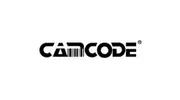
CAMCODE
The Institute of Supply Management (ISM) is the primary U.S.-based industry association which grants approvals to supply management degree programs. ISM-approved programs provide ample education to meet today’s standards and practices for students with a desire to enter the Supply Management field. Even BusinessWeek, back in 2011, discussed the importance of supply chain management as “the next big thing.” One thing’s for sure: Supply Management and Supply Chain Management are promising career fields for today’s undergrad students wishing to pursue a prosperous career in business.
To help you choose the right school for you for an education in supply chain management, we’ve compiled out list of “The Top 26 Supply Chain Management College Degree Programs.”
Please note that the following list is in no particular order.
To help you choose the right school for you for an education in supply chain management, we’ve compiled out list of “The Top 26 Supply Chain Management College Degree Programs.”
Please note that the following list is in no particular order.

business.com
As the government shutdown that began in December 2018 enters its second month, many entrepreneurs are left wondering how to address it. This guide will help you not just survive but thrive while the federal government is shuttered.
The chief concern of a small business owner, even in the best of times, is cash flow. According to Lyneir Richardson, executive director of the Center for Urban Entrepreneurship and Economic Development at Rutgers University, government shutdowns often have an adverse effect on cash flow, and not just for small businesses that rely heavily on public contracts. When those companies feel the squeeze, he said, they will often delay capital expenditures and invoice payments to other businesses they work with, creating a "ripple effect" in the wider economy.
"The biggest fear for small businesses during a shutdown relates to cash flow," Richardson said. "Will my payments be processed? Can I get a loan? Will I get the green light on a contract I've been working on? Will I get paid for the work we've done, or will there be a long line to get my invoice paid? Cash is oxygen, and without oxygen, you quickly start to feel the pressure."
The chief concern of a small business owner, even in the best of times, is cash flow. According to Lyneir Richardson, executive director of the Center for Urban Entrepreneurship and Economic Development at Rutgers University, government shutdowns often have an adverse effect on cash flow, and not just for small businesses that rely heavily on public contracts. When those companies feel the squeeze, he said, they will often delay capital expenditures and invoice payments to other businesses they work with, creating a "ripple effect" in the wider economy.
"The biggest fear for small businesses during a shutdown relates to cash flow," Richardson said. "Will my payments be processed? Can I get a loan? Will I get the green light on a contract I've been working on? Will I get paid for the work we've done, or will there be a long line to get my invoice paid? Cash is oxygen, and without oxygen, you quickly start to feel the pressure."

The Daily Star
The pharmaceutical industry in Bangladesh has done remarkably well, growing at more than 15 percent a year, with sales of approximately $2.4 billion in 2017.
Pharmaceutical is a high tech science business. While Bangladesh does not have any high tech science business yet, the conditions are perfect for promoting one. IT, telecommunications and pharmaceuticals are very promising sectors. The pharmaceutical sector is doing well but lacks innovative products. The current policy of relying on low margin generic products to grow is a low growth equilibrium trap for the country.
Many pharmaceutical companies have partnerships with universities for conducting basic science research. These partnerships are breeding grounds for developing the molecules of potential therapeutic value.
The pharmaceutical industry in Bangladesh should form similar network and partnerships with the local scientists' community.
Pharmaceutical is a high tech science business. While Bangladesh does not have any high tech science business yet, the conditions are perfect for promoting one. IT, telecommunications and pharmaceuticals are very promising sectors. The pharmaceutical sector is doing well but lacks innovative products. The current policy of relying on low margin generic products to grow is a low growth equilibrium trap for the country.
Many pharmaceutical companies have partnerships with universities for conducting basic science research. These partnerships are breeding grounds for developing the molecules of potential therapeutic value.
The pharmaceutical industry in Bangladesh should form similar network and partnerships with the local scientists' community.

NJTVNews
NJTVNews. New report shows NJ industry innovation is falling behind in the region, Lyneir Richardson
The New Jersey Business and Industry Association released a report Friday called “Indicators of Innovation.” It looks at where the Garden State ranks in comparison with six other states in the region when it comes to innovation. The takeaway: we’re struggling to compete.
Rutgers Business School Professor Lyneir Richardson gives New Jersey a “B.”
“The private sector, there needs to be more capital in venture capital and angel investing, investing in innovation, investing in entrepreneurs,” Richardson said.
Rutgers Business School Professor Lyneir Richardson gives New Jersey a “B.”
“The private sector, there needs to be more capital in venture capital and angel investing, investing in innovation, investing in entrepreneurs,” Richardson said.

Metro MBA
When considering earning an MBA, a few priorities tend to stick out. Cost, career opportunities, flexibility, and educational value are all obvious sticking points. However, another crucial feature should matter more when it comes time to decide where you’ll go: return on investment.
Rutgers Business School in New Brunswick and Newark, New Jersey, isn’t just the premiere MBA option in the Garden State (ranked 44th overall by U.S. News & World Report): it’s among the best return on investment opportunities you can find anywhere.
MetroMBA talked to several current students. Read on to see their stories and what the future may hold for life after an MBA.
Rutgers Business School in New Brunswick and Newark, New Jersey, isn’t just the premiere MBA option in the Garden State (ranked 44th overall by U.S. News & World Report): it’s among the best return on investment opportunities you can find anywhere.
MetroMBA talked to several current students. Read on to see their stories and what the future may hold for life after an MBA.
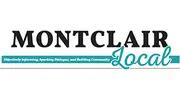
Montclair Local
Is the development boom in Montclair going to bring a sizable number of new students into the district, which, in turn, could create a need for more facilities? In the opinion of local developers, the answer is no, because the projects in Montclair are high-rise housing developments that, they contend, do not primarily appeal to families with children.
That, in essence, is the question the Center for Real Estate at Rutgers Business School sought to address in a study, “School-Age Children in Rental Units in New Jersey: Results from a Survey of Developers and Property Managers,” released last July. The Rutgers researchers found that the number of students increase with the number of bedrooms, that more families live in garden apartments than in high rises, and that the number of children decreases as the income level of apartment dwellers increase.
That, in essence, is the question the Center for Real Estate at Rutgers Business School sought to address in a study, “School-Age Children in Rental Units in New Jersey: Results from a Survey of Developers and Property Managers,” released last July. The Rutgers researchers found that the number of students increase with the number of bedrooms, that more families live in garden apartments than in high rises, and that the number of children decreases as the income level of apartment dwellers increase.

MiM Guide
The successful management of supply chains has always been critical to global trade.
Today supply chains are extremely complex, global and rapidly changing.
An MSc in Supply Chain Management can help you get ahead of the curve of change.
At Rutgers Business School in New Jersey, a one-week executive seminar focuses on the latest supply chain trends, in the MSc in Supply Chain Management program. “We are constantly challenging ourselves as a program, as well as our faculty, to keep our courses as fresh and up-to-date as possible,” says Rudolf Leuschner, who is director of the MSc.
Students can, for example, opt to take optional courses on using enterprise software created by SAP, the German software company, with Rutgers’ MBA candidates.
The MSc course is taught entirely online and can be completed in a year, though students can opt to come to campus for some courses. They study digitally via pre-recorded video lectures and group discussion chatrooms, and in doing so they learn to collaborate remotely and globally using technology, which is not unlike the work of a supply chain manager.
Today supply chains are extremely complex, global and rapidly changing.
An MSc in Supply Chain Management can help you get ahead of the curve of change.
At Rutgers Business School in New Jersey, a one-week executive seminar focuses on the latest supply chain trends, in the MSc in Supply Chain Management program. “We are constantly challenging ourselves as a program, as well as our faculty, to keep our courses as fresh and up-to-date as possible,” says Rudolf Leuschner, who is director of the MSc.
Students can, for example, opt to take optional courses on using enterprise software created by SAP, the German software company, with Rutgers’ MBA candidates.
The MSc course is taught entirely online and can be completed in a year, though students can opt to come to campus for some courses. They study digitally via pre-recorded video lectures and group discussion chatrooms, and in doing so they learn to collaborate remotely and globally using technology, which is not unlike the work of a supply chain manager.

WalletHub
WalletHub’s editors compared more than 300 Mastercard credit card offers – based on their rewards, rates and fees – and identified the top deals in the most popular categories.
But only you can decide whether a given credit card is a good fit. So make sure to consider your credit standing, existing debts, payment habits, etc., when comparing these offers.
Ask the Experts
John Longo
Professor of Professional Practice in the Finance & Economics Department at Rutgers Business School
Should every person have at least one Mastercard credit card?
For people that use credit responsibly, I suggest that they own either a Visa or Mastercard. Both firms may provide extra warranty protection for some purchases. Credit card purchases also result in an auditable "paper trail" and may offer benefits, such as cash back or points that may be redeemed for other goods and services. In most cases, it isn't necessary to own both Mastercard and Visa.
What, if any, differences do you think there are between Visa and Mastercard in the eyes of the average consumer?
For most consumers, there are no meaningful differences between Visa and Mastercard. Almost any vendor that accepts credit cards will accept both. Besides paying off your credit card each month, I would suggest using a credit card that gives you the most cash back or points related to things you naturally consume, such as airline tickets. In general, some of the more prestigious rewards programs, like Chase Sapphire Preferred, tend to use the Visa name. I think most consumers tend to believe the American Express is a more premium brand than either Visa or Mastercard. Perhaps they may have heard of its invitation-only American Express Centurion Black Card.
But only you can decide whether a given credit card is a good fit. So make sure to consider your credit standing, existing debts, payment habits, etc., when comparing these offers.
Ask the Experts
John Longo
Professor of Professional Practice in the Finance & Economics Department at Rutgers Business School
Should every person have at least one Mastercard credit card?
For people that use credit responsibly, I suggest that they own either a Visa or Mastercard. Both firms may provide extra warranty protection for some purchases. Credit card purchases also result in an auditable "paper trail" and may offer benefits, such as cash back or points that may be redeemed for other goods and services. In most cases, it isn't necessary to own both Mastercard and Visa.
What, if any, differences do you think there are between Visa and Mastercard in the eyes of the average consumer?
For most consumers, there are no meaningful differences between Visa and Mastercard. Almost any vendor that accepts credit cards will accept both. Besides paying off your credit card each month, I would suggest using a credit card that gives you the most cash back or points related to things you naturally consume, such as airline tickets. In general, some of the more prestigious rewards programs, like Chase Sapphire Preferred, tend to use the Visa name. I think most consumers tend to believe the American Express is a more premium brand than either Visa or Mastercard. Perhaps they may have heard of its invitation-only American Express Centurion Black Card.

WalletHub
WalletHub’s editors compared more than 300 Mastercard credit card offers – based on their rewards, rates and fees – and identified the top deals in the most popular categories.
But only you can decide whether a given credit card is a good fit. So make sure to consider your credit standing, existing debts, payment habits, etc., when comparing these offers.
Ask the Experts
Stacy Smollin Schwartz
Assistant Professor of Professional Practice, Department of Marketing, Rutgers Business School - Newark & New Brunswick
Why would a credit card company offer 1% cash back on purchases and 1% cash back when cardholders pay the balances resulting from those purchases, rather than just 2% cash back at either point?
For cardholders, a “double cash back” offer has strong promotional appeal. Receiving 2% cash back at either point may be a competitive rate, but lacks the sizzle of a headline that implies it’s twice as big as what you can get somewhere else. I also like the way this offer rewards cardholders for making payments, adding an element of gamification, customer control, and aligned incentives to pay promptly. For Citibank, adding a payment-triggered reward element allows them to beat competitive offers without floating extra cash, since the merchant is owed the full retail price within a few days of sale. This means the credit card company has more time to generate investment returns from cardholders’ future reward money.
But only you can decide whether a given credit card is a good fit. So make sure to consider your credit standing, existing debts, payment habits, etc., when comparing these offers.
Ask the Experts
Stacy Smollin Schwartz
Assistant Professor of Professional Practice, Department of Marketing, Rutgers Business School - Newark & New Brunswick
Why would a credit card company offer 1% cash back on purchases and 1% cash back when cardholders pay the balances resulting from those purchases, rather than just 2% cash back at either point?
For cardholders, a “double cash back” offer has strong promotional appeal. Receiving 2% cash back at either point may be a competitive rate, but lacks the sizzle of a headline that implies it’s twice as big as what you can get somewhere else. I also like the way this offer rewards cardholders for making payments, adding an element of gamification, customer control, and aligned incentives to pay promptly. For Citibank, adding a payment-triggered reward element allows them to beat competitive offers without floating extra cash, since the merchant is owed the full retail price within a few days of sale. This means the credit card company has more time to generate investment returns from cardholders’ future reward money.

The Inquirer
There will be no flashing green leaf signs on the highway. No cartoon figures. No Facebook push. On TV and radio, pot would be pitched to the 21–plus crowd — after hours.
This is how the Garden State is contemplating the regulation of cannabis advertising. Think booze and cigarettes.
The limitations likely won’t hurt emergent cannabis companies that are looking to establish a customer base, said Lyneir Richardson, director of the Center for Urban Entrepreneurship and Economic Development at Rutgers Business School-Newark.
“There’s so much public expectation and interest in this new product,” he said. Information about the product will be readily accessible, he said.
Richardson said the advertising regulations are necessary. “Everyone is proceeding with the appropriate level of cautiousness," he said. “We see the business opportunity in legalizing cannabis, but we don’t know the unintended consequences. ... We should get the positive benefits from legalizing marijuana without stepping on the land mines.”
This is how the Garden State is contemplating the regulation of cannabis advertising. Think booze and cigarettes.
The limitations likely won’t hurt emergent cannabis companies that are looking to establish a customer base, said Lyneir Richardson, director of the Center for Urban Entrepreneurship and Economic Development at Rutgers Business School-Newark.
“There’s so much public expectation and interest in this new product,” he said. Information about the product will be readily accessible, he said.
Richardson said the advertising regulations are necessary. “Everyone is proceeding with the appropriate level of cautiousness," he said. “We see the business opportunity in legalizing cannabis, but we don’t know the unintended consequences. ... We should get the positive benefits from legalizing marijuana without stepping on the land mines.”

Diversity MBA
Rutgers Business School MBA alumna Dasheeda Dawson and her groundbreaking cannabis industry workbook set to elevate Times Square as part of historic activation.
After a landmark year of growth and expansion, African-American corporate executive turned cannabis trailblazer Dasheeda Dawson will make history on New Year’s Eve as the head of the first ever minority-led cannabis company to be featured in a Times Square promotional campaign.
“New Year’s Eve is a time for celebration, and ushering in a fresh start and perspective, says Dawson, founder of “The WeedHead™,” a lifestyle brand aimed at high powered professionals curious about and/or working in the legal cannabis industry. “It’s a time for entrepreneurs and businesses to reassess their goals and objectives. My book ‘How to Succeed in the Green Rush,’ is a workbook designed to help small business owners, contractors and professionals interested in the cannabis industry, enter with the knowledge they need to succeed in 2019. We’re thrilled to showcase our workbook at Times Square, the world’s most iconic New Year’s Eve location.”
Dawson received her MBA from Rutgers Business School and completed her undergraduate degree in Molecular Biology at Princeton University in 2001.
After a landmark year of growth and expansion, African-American corporate executive turned cannabis trailblazer Dasheeda Dawson will make history on New Year’s Eve as the head of the first ever minority-led cannabis company to be featured in a Times Square promotional campaign.
“New Year’s Eve is a time for celebration, and ushering in a fresh start and perspective, says Dawson, founder of “The WeedHead™,” a lifestyle brand aimed at high powered professionals curious about and/or working in the legal cannabis industry. “It’s a time for entrepreneurs and businesses to reassess their goals and objectives. My book ‘How to Succeed in the Green Rush,’ is a workbook designed to help small business owners, contractors and professionals interested in the cannabis industry, enter with the knowledge they need to succeed in 2019. We’re thrilled to showcase our workbook at Times Square, the world’s most iconic New Year’s Eve location.”
Dawson received her MBA from Rutgers Business School and completed her undergraduate degree in Molecular Biology at Princeton University in 2001.

LinkedIn
This semester, I engaged my Rutgers Business School students on a team project to learn about sustainability innovations that companies are making - I loved the results.
First, it was quite exciting to learn about companies that are innovating for global good. For example: TerraCycle, a young company "Eliminating the Idea of Waste® by recycling the non-recyclable.
Second, students loved the experience. They wrote:
"Before working with my group to do this project, I gave very little thought to sustainability. After working on this and learning of TerraCycle, the idea of sustainability is at the forefront of my mind."
Special thanks to the companies who opened their doors to our student teams!
#sustainability #innovation #business #education
First, it was quite exciting to learn about companies that are innovating for global good. For example: TerraCycle, a young company "Eliminating the Idea of Waste® by recycling the non-recyclable.
Second, students loved the experience. They wrote:
"Before working with my group to do this project, I gave very little thought to sustainability. After working on this and learning of TerraCycle, the idea of sustainability is at the forefront of my mind."
Special thanks to the companies who opened their doors to our student teams!
#sustainability #innovation #business #education
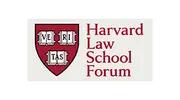
Harvard Law School Forum
This post is based on their recent article, forthcoming in the Journal of Financial Economics.
We study fund-firm connections that arise when firm executives and directors serve as fund directors. We find that connected funds are significantly more likely to vote with management in proposals with negative ISS recommendations or low shareholder support. As our data shows that management support does not exist either before connection formation or after its termination, this result is unlikely to be caused by omitted factors. Rather, the connected fund’s voting patterns show independence from ISS recommendations and successful connected voting is associated with positive announcement returns, suggesting that connected fund support for management reflects information advantages. Lastly, we find that a fund family and firm are more likely to connect when the fund family holds a large stake in the firm and is geographically proximate, as well as when it has a record of voting independently from ISS.
We study fund-firm connections that arise when firm executives and directors serve as fund directors. We find that connected funds are significantly more likely to vote with management in proposals with negative ISS recommendations or low shareholder support. As our data shows that management support does not exist either before connection formation or after its termination, this result is unlikely to be caused by omitted factors. Rather, the connected fund’s voting patterns show independence from ISS recommendations and successful connected voting is associated with positive announcement returns, suggesting that connected fund support for management reflects information advantages. Lastly, we find that a fund family and firm are more likely to connect when the fund family holds a large stake in the firm and is geographically proximate, as well as when it has a record of voting independently from ISS.
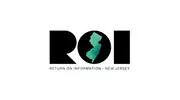
ROI
A Rutgers University student is headed to the national finals after winning the state round of a business competition called the Global Student Entrepreneur Awards.
Kwaku Agyemang co-owns BrownMill Co., a Piscataway-based fashion company that aims to reduce the amount of textile waste that ends up in landfills. With the senior’s win at the local level, he received $1,500 and the right to go on to the national round of the competition, to be held Jan. 10-11 in Denver — with the chance to advance to the global finals in Macau.
Agyemang, 21, is a finance major at the Rutgers Business School with a concentration in entrepreneurship. The Ghanaian-American is a native of Newark who now lives in Piscataway. “BrownMill is a lifestyle brand touted as a mix between bespoke tailoring and streetwear, with a focus on the community,” he told ROI-NJ.
Kwaku Agyemang co-owns BrownMill Co., a Piscataway-based fashion company that aims to reduce the amount of textile waste that ends up in landfills. With the senior’s win at the local level, he received $1,500 and the right to go on to the national round of the competition, to be held Jan. 10-11 in Denver — with the chance to advance to the global finals in Macau.
Agyemang, 21, is a finance major at the Rutgers Business School with a concentration in entrepreneurship. The Ghanaian-American is a native of Newark who now lives in Piscataway. “BrownMill is a lifestyle brand touted as a mix between bespoke tailoring and streetwear, with a focus on the community,” he told ROI-NJ.